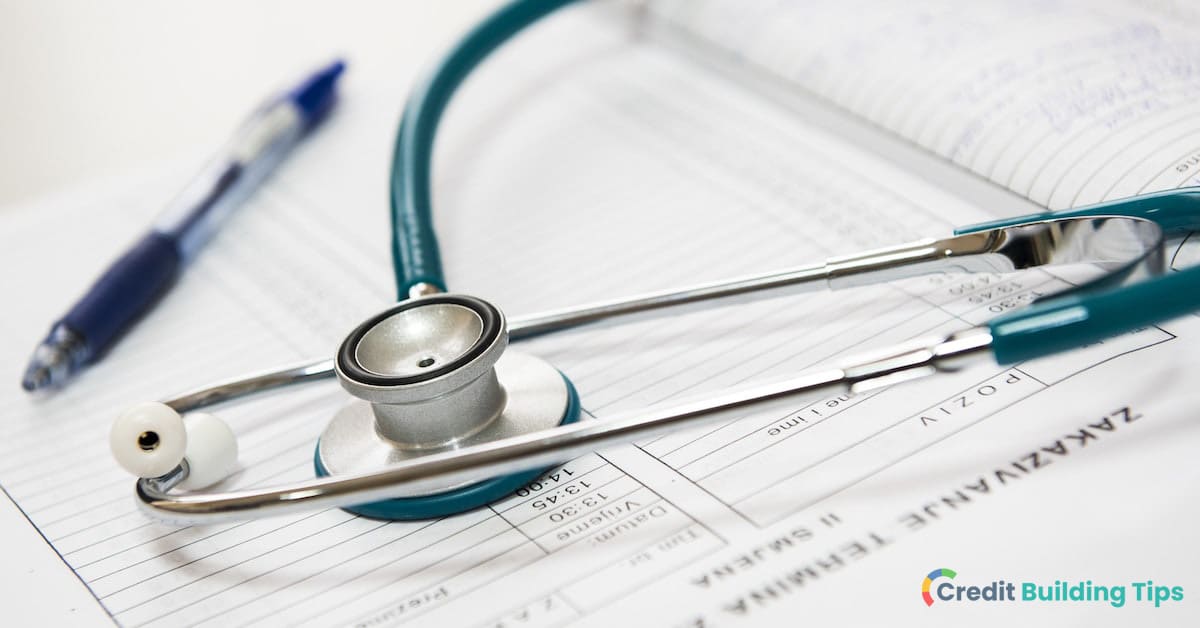A bankruptcy discharge releases an individual from their legal obligation to repay a debt. This is a permanent order that prohibits creditors from taking any more collection action against the debtor.
Though bankruptcy is often seen as a fresh start for debtors, it doesn't mean that your slate will be wiped completely clean. Both the bankruptcy itself and the discharged debt will show up on your credit report.
 Is there anything you can do to remove discharged debt from your credit report? How do you remove incorrect information from your credit report about discharged debt after bankruptcy?
Is there anything you can do to remove discharged debt from your credit report? How do you remove incorrect information from your credit report about discharged debt after bankruptcy?In this article, we'll take a closer look at everything you need to know about forgiven debt after bankruptcy and what it means for your credit file.
If a debt is discharged, it means that you aren't liable for the debt anymore. Beyond this, the lender or creditor isn't allowed to try and receive the money that is owed.
Essentially, debt discharge is the cancellation of a debt. This occurs via the process of bankruptcy.
The people that file for bankruptcy (often referred to as "debtors") will commonly go through this process to remove their obligation to pay certain kinds of debt and obtain a fresh start financially. Though not every single type of debt is dischargeable, most typical consumer debts are dischargeable.
It's possible for taxable income to result from debt discharge unless there are certain conditions met as defined by the IRS.
Discharged debt can result from bankruptcy rulings. If the debtor meets all of the court's criteria in Chapter 7 or Chapter 11 bankruptcy, the court might discharge the debt.
A person or company that has a debt discharged by a court doesn't have to pay back the debt anymore and the lenders aren't allowed to try and make attempts to collect the debt.
Unless the forgiveness is a bequest or a gift, a debt discharge is often something that results in taxable income. If the debtor meets the requirements laid out by the IRS, however, some debt discharges are exempt from paying taxes.
A person that is filing for bankruptcy is trying to eliminate as much of their debt as they can. This allows them to start over financially.
Either immediately or at the end of the bankruptcy process, a number of types of debts will be discharged. The following are some of the types of debts can be discharged:

In Chapter 13 bankruptcy, some additional types of debt are eligible for discharge, including:
Though there can be specific exceptions, there are certain types of debt that typically aren't allowed to be discharged through the bankruptcy process. These debts were deemed to be not eligible for discharge by the U.S. Congress for reasons of public policy:

Qualifying for discharges for these debts is usually very hard to do. You will need to prove that you wouldn't be able to maintain a minimal standard of living if you continued to make payments. You also usually can't discharge penalties and fines from government agencies that resulted from breaking the law, or debts resulting from a drunk driving incident that resulted in personal injury debts.
Other debts that are unlikely to be discharged include:
If you've gone through the bankruptcy process and some of your debts have been discharged, this information will typically show up on your credit report. They can stay on your reports for a long time, which can have a negative effect on how lenders view your creditworthiness.
Technically, you are not supposed to be able to remove accurate information from your credit report. For this reason, there is no guarantee that your attempts to remove correct debt discharge information will be successful.
If the debt discharge is showing up in error or the information regarding them is incorrect, you will definitely want to dispute the information. Any inaccurate information on your credit report should be disputed so that your financial opportunities aren't harmed by incorrect data.
The first step is to review each of your credit reports, which you can get for free from AnnualCreditReport.com. Take a look at your accounts and locate all of the information about the discharged debt that you believe is inaccurate.
Before you file a dispute, it's worth doing some sleuthing to make sure that the information is actually incorrect as you think it is. Take a look at your own records and compare them to what you see on your credit report.
You will want to file disputes with every credit bureau that is reporting inaccurate information. You can do this online, over the phone, or through the mail.
Unfortunately, you won't receive an answer right away-- it will usually take 30 to 45 days to hear the results of the credit bureaus' investigation. Hopefully, they will find, as you have, that the information is incorrect and should be altered or removed. If they don't rule in your favor, though, you can shift your focus toward rebuilding your credit through other means.
Cleaning up your credit report can take time, and some information you will have to wait to fall off your report if it is accurate. Make sure you check out our guides to removing collections, dispute comments, evictions, and late payments if you are ready to improve your credit.
After bankruptcy, there are a number of errors that can appear on your credit reports when it comes to discharged debts. Let's look at some of the most common errors to help you understand what steps you should take.
If you had a debt that was discharged as a result of bankruptcy, it should be noted as "discharged in bankruptcy" or something along those lines on your credit report. The balance due, regardless of how much you originally owed, should read $0.
If you go through all of the trouble to have your debts discharged and your credit report states that you still owe your creditor, it's natural to be surprised and disturbed.
It's possible that your credit report hasn't been updated yet-- if the debt discharge only recently occurred, this is likely the case. Otherwise, you can dispute the information either with the creditor or the credit bureaus to make sure that your report accurately reflects the new debt amount-- zero.
When you have a debt discharged through bankruptcy, it completely severs the relationship that you had with the creditor or lender. This party no longer has any legal right to try and recoup the money you owe and they also don't have any legal right to pull your credit every month.
When lenders do a hard inquiry into your credit, it will bring down your credit score. You'll want to dispute these inquiries in order to have them removed from your report.
Creditors can choose to charge off a credit card account for a number of reasons. However, they are not allowed to do this if you've received a debt discharge or filed for bankruptcy. When a charge-off shows up on your credit report, it will damage your credit score as well as how you appear in the eyes of a potential lender.
If your debt is listed as charged off instead of discharged, you'll want to dispute this information.
Particularly common after Chapter 13 bankruptcy, former creditors will sometimes report that you still owe them money even after your debt has been discharged. Secured creditors are most guilty of this.
For example, let's say that you had a car that you were upside down on that you surrendered to the bank. Let's say that you owed $40,000 and it was only worth $30,000.
That $10,000 is no longer secured debt-- it turns into unsecured debt. This debt either gets paid or doesn't get paid in accordance with the Chapter 13 plan that resulted from the court proceedings. If the debt is discharged, the money is not owed to the lender.
If you believe that you don't owe a creditor more money but they are still reporting that you do on your credit report, you'll want to dispute this information with the creditor, the credit bureaus that are reporting the incorrect information, or both.
In bankruptcy cases, sometimes debts will be reaffirmed rather than discharged. This occurs when a debtor wants to pay a specific debt even though it could potentially be discharged through the bankruptcy process.
For example, a debtor might choose that they want to hold on to their car and continue paying the debt on it. This debt could then be reaffirmed rather than discharged. The debtor is, therefore, still responsible for paying back the money they owe.
Sometimes, this will show up on a credit report as discharged in bankruptcy rather than reaffirmed. You can correct this information on your credit report by disputing it with the credit bureaus or the creditors themselves.
When a married couple has joint debts and one spouse files for bankruptcy while the other does not, the non-filing spouse will likely see information on those joint accounts that say something along the lines of "included in bankruptcy." This is to be expected.
However, sometimes the non-filing spouse will actually see information on their credit report that claims that they themselves filed for bankruptcy either under the public records section or attached to one of their solely-owned accounts.
Incorrect information like this on your spouse's credit report can be very damaging to their score unnecessarily. You'll want to dispute the information in order to have it corrected.
Bankruptcy can, in some ways, be a fresh start, but you don't necessarily get to begin with a completely clean slate. Discharged debts will show up on your credit report and remain there for some time, and bankruptcy will show up in your public records.
Even if you aren't able to completely remove discharged debts from your credit report, there are a number of things you can do to rebuild your credit over time. Though it can feel like an uphill battle, it's worth investing in your credit to ensure that as many financial opportunities as possible are open to you down the road.
Are you searching for more resources to help you build your credit? If so, make sure you check out our Credit Building Tips blog.